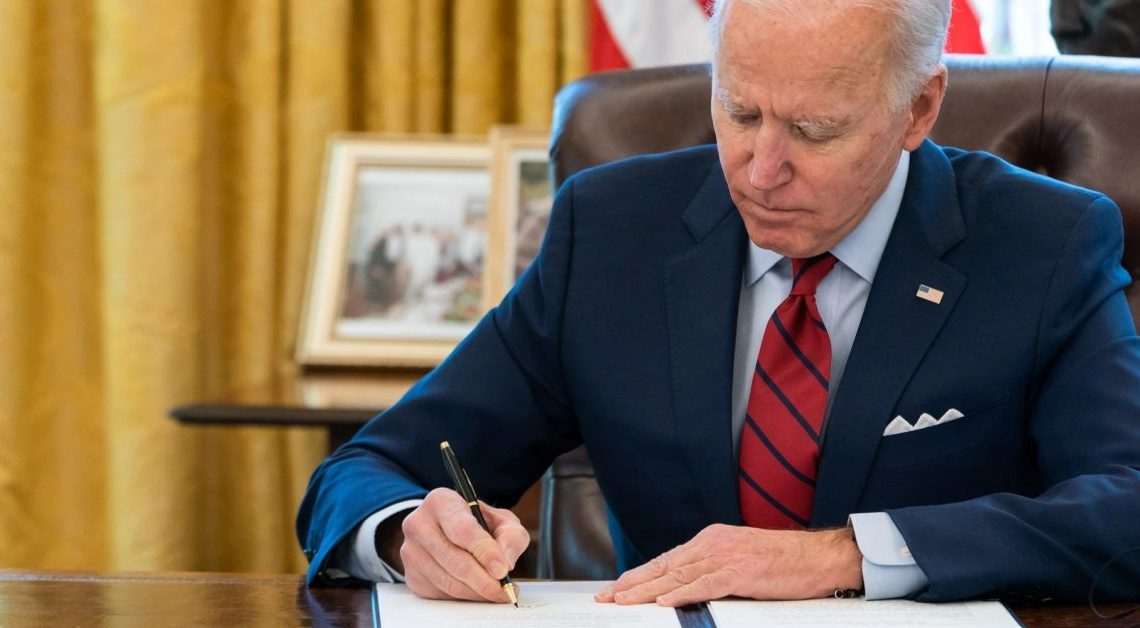
US President Joe Biden, whose administration has put electric vehicles front and center of an ambitious policy to dramatically curb emissions, may walk back his proposal on yearly EV requirements through 2030 due to political pressures and pushback from automakers and the UAW.
Both automakers and United Auto Workers have urged the government to slow down the EV ramp-up, saying the technology is too expensive for the mainstream US consumer and that the country needs more time to adapt and develop charging infrastructure.
In January, the UAW said it would endorse Biden for his pro-labor stance – but it is worried too that EVs require fewer workers to build than ICE vehicles and that EV plants are being built in states with few unions, the New York Times writes.
In the other corner, there is the looming political threat that is Republican Donald Trump, who claims that EVs “don’t work” and that Biden’s plan threatens jobs and is “lunacy,” and that he would slash the plan immediately upon his return to the White House, the New York Times reports.
Last spring, the Environmental Protection Agency proposed a strict limit on tailpipe emissions, putting pressure on automakers to sell more and more EVs to comply. The proposed regulations require 67% of new cars and light-duty trucks to be all-electric by 2030, up from 7.6% in 2023.
This is still the goal, but sources have told Reuters that administration officials are tweaking the plan, effectively weakening it to slow the pace of the EV requirements so that it’d be more gradual through 2030, but then it would sharply rise again after that.
Of course, this would come at a huge cost to the climate, as we’re facing one of the hottest years in recorded history.
Still, the UAW strongly backs a revised requirement that slows EV targets, arguing that the requirements need to increase “more gradually” and occur over a “greater period of time,” Reuters reports.
Last year, the Alliance for Automotive Innovation (AAI), a trade group for GM, Ford, Stellantis, Toyota, and Volkswagen, to name a few, had called the original EPA proposal “neither reasonable nor achievable.”
Last year, EVs accounted for about 8% of sales in the US, according to Reuters. Still, the government says that EV sales have quadrupled in the US since Biden took office, with the number of publicly available charging ports rising by nearly 70%. Today, more than 4 million EVs are on US roadways.
Still, not everyone is on board. “Give the market and supply chains a chance to catch up, maintain a customer’s ability to choose, let more public charging come online, let the industrial credits and Inflation Reduction Act do their thing and impact the industrial shift,” AAI CEO John Bozzella told reporters on Sunday.
The AAI met with the White House and the EPA last week to talk about revising the proposal, while Tesla officials had their own meeting with the White House to discuss earlier this month.
Reuters also reported that automakers are also pushing back on an EPA proposal to cut particulate matter from ICE vehicles because they argue it would require gasoline particulate filters on every ICE vehicle. They also object to the EPA plan to cut back on the use of “enrichment,” a strategy to boost performance and curb engine damage from exhaust gases. Automakers say that they would be unable to use some engines in this case.
Automakers also don’t like the Energy Department’s proposal to revise how it tallies the petroleum-equivalent fuel economy rating, or CAFE requirements, for EVs, stressing that it bumps up fines for not complying.
Biden now has a final draft of the proposal from the Energy Department, and the Transportation Department’s separate proposal to boost CAFE requirements is expected later this spring.
Author: Jennifer Mossalgue
Source: Electrek




Top comment by Chris
Liked by 10 people
Personally I think going from 7 % to 67% in 5 years is pretty aggressive. Is it possible? Probably but it will require a lot of battery manufacturing quickly. If the vast majority of Americans wanted to keep the current timeline then he would keep it. He’s looking to get their votes. People can bash him as much as they want, but if he loses the other guy will be 10 times worse for the environment. Not to mention the whole idea of you know a democracy and all that
View all comments